Ein globaler Ausblick
Das C²DH bemüht sich um die Einbeziehung der Öffentlichkeit und der Förderung eines besseren Verständnisses der Geschichte im digitalen Zeitalter. Zu den Outreach-Aktivitäten gehören die Organisation von Konferenzen, Workshops und öffentlichen Vorträgen sowie die Veröffentlichung virtueller Ausstellungen, Open-Access-Bücher und anderer digitaler Ausgaben.
Virtuelle Ausstellungen und Online-Projekte
Die virtuellen Ausstellungen des C²DH bieten ein immersives Erlebnis der Vergangenheit, indem sie einzigartige Einblicke in historische Themen wie die Weltkriege in Luxemburg, die komplexe Vergangenheit der Industrieregion Minett oder die Geschichte Ostbelgiens gewähren. Diese Ausstellungen spiegeln die neuesten Fortschritte in der digitalen Technologie wider und brechen mit den Formen des traditionellen Geschichtenerzählens, indem sie virtuell kuratierte Erzählungen auf nichtlineare Weise präsentieren und Multimedia-Inhalte und interaktive Funktionen einbeziehen, um ein informatives und unterhaltsames Erlebnis zu bieten.
-
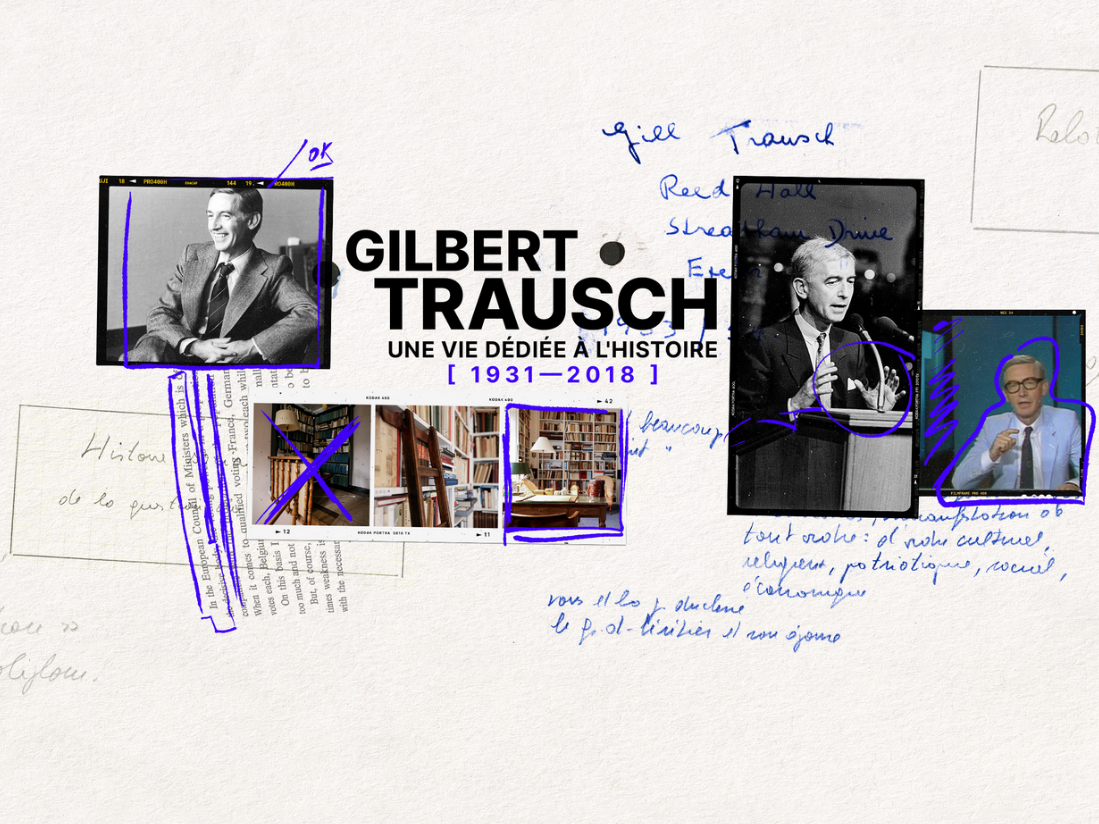
Gilbert Trausch – Ein Leben für die Geschichte (1931-2018)
Diese Online-Ausstellung über Gilbert Trausch – eine emblematische Figur der luxemburgischen Geschichtsschreibung – bietet einen einzigartigen Einblick in die Arbeit eines Historikers vor und zu Beginn der computergestütztenForschung.
-

WW2.lu. Luxemb(o)urg im Zweiten Weltkrieg
WW2.lu ist eine mehrsprachige Online-Ausstellung, die die Geschichte Luxemburgs während des Zweiten Weltkriegs unter Berücksichtigung der neuesten historischen Forschung präsentiert.
-

Die Geschichte des nationalen Bergarbeiterdenkmals in Kayl
Zwischen 1860 und 1980 fordert der Bergbau im Großherzogtum das Leben von etwa 1.500 Bergleuten. Ihnen zu Ehren errichtete die Gemeinde Kayl Mitte der 1950er Jahre ein Denkmal gleich gegenüber der “Léiffrächen”. Erfahren Sie mehr über die Geschichte und die Statistiken.
-
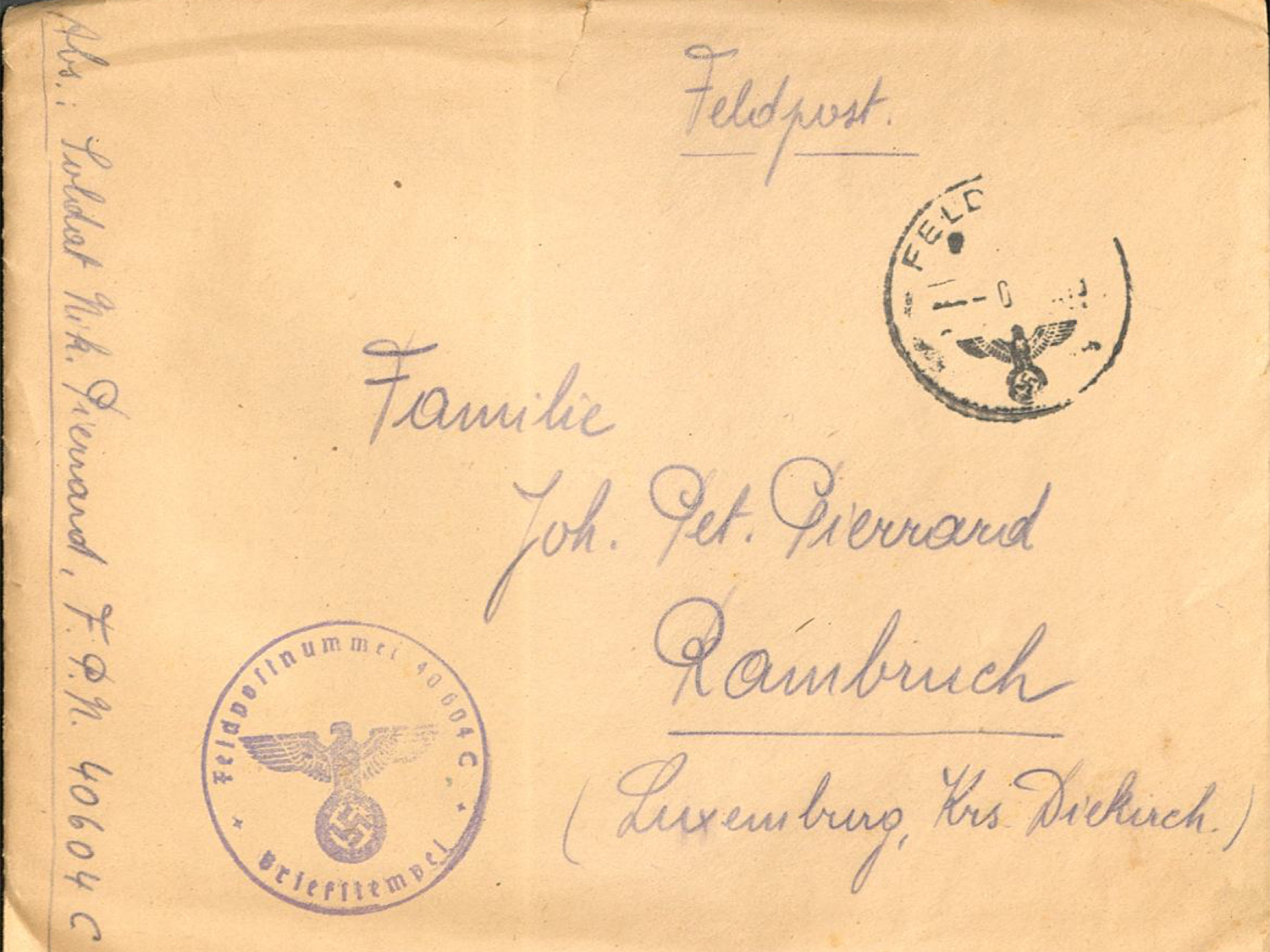
WARLUX
Die Warlux Projet Webseite widmet sich den Kriegserfahrungen junger Luxemburger Männer, die in den Reichsarbeitsdienst und die Wehrmacht während des Zweiten Weltkriegs eingezogen wurden. Die Webseite enthält eine reiche Sammlung an digitalisierten Kriegsbriefen.
-

Gazengel
Lernen Sie Gazengel kennen, eine fiktive Doktorandin, ausgedacht von Alinéor Gandanger, die selbst Doktorandin an den Universitäten Caen und Luxemburg ist. Gazengel führt Sie hinter die Kulissen einer jungen Forscherin und erkundet die verschiedenen Facetten ihrer wissenschaftlichen und kreativen Abenteuer.
-
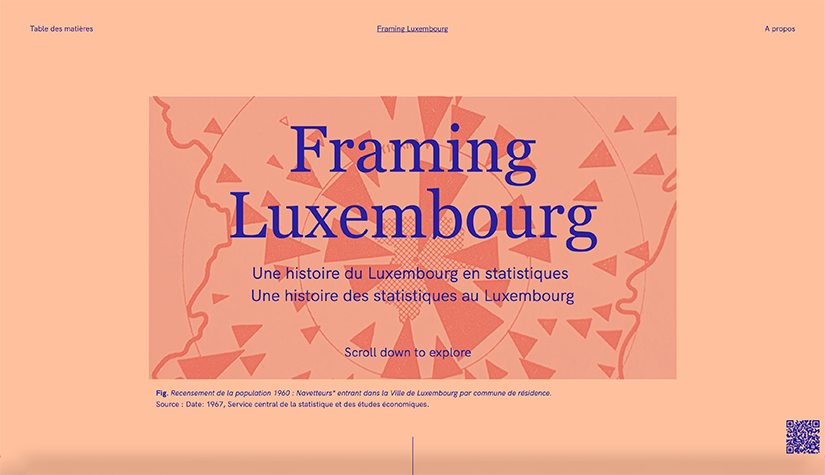
Framing Luxembourg
Mit „Framing Luxembourg“ erzählen Statec und das C²DH „eine Geschichte Luxemburgs in der Statistik sowie eine Geschichte der Statistik in Luxemburg“.
-

Minett Stories
Die virtuelle Ausstellung „Minett Stories“ beschäftigt sich in 22 Kapiteln mit der Geschichte und Identität des Minett, der Industrieregion im Süden Luxemburgs.
-
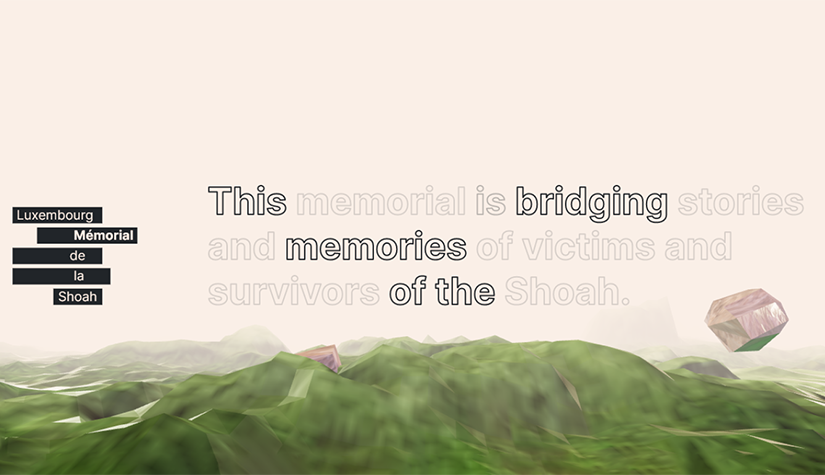
Luxemburg Shoah Memorial
Das Memorial baut eine Brücke zwischen den Geschichten und den Erinnerungen der Opfer und der Überlebenden der Shoah.
-
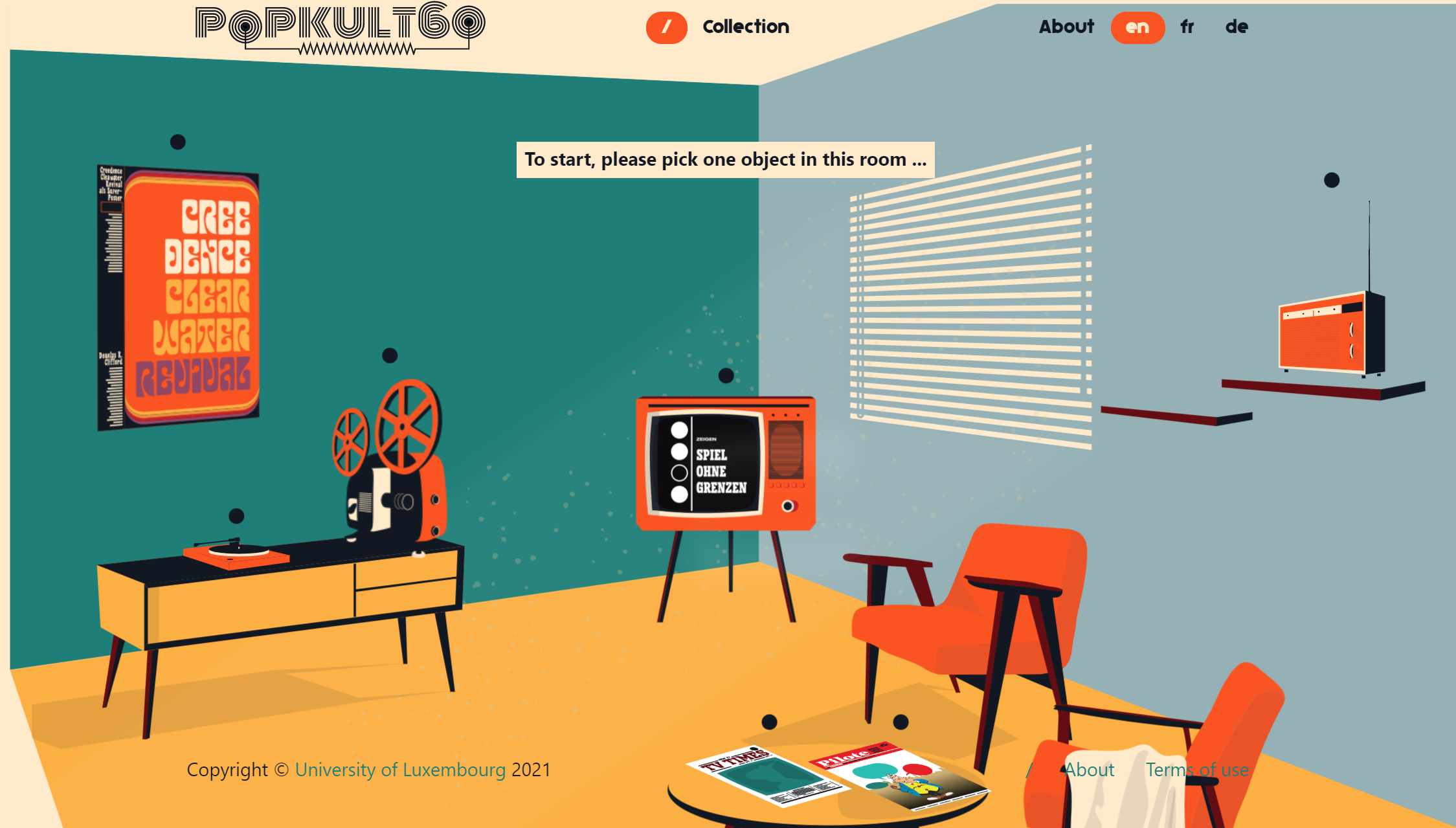
Popkult 60 online Ausstellung
Die digitale Ausstellung des Forschungsprojekts Popkult60 zur transnationalen Geschichte der Populärkultur der 1960er Jahre untersucht die reiche kulturelle Produktion der 1960er Jahre und die Verbindungen zwischen den europäischen Ländern.
-
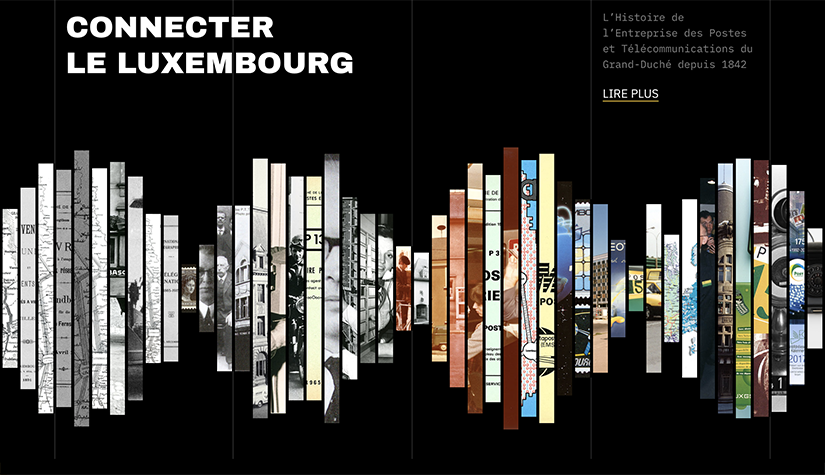
175 Joer POST
Ein virtuelles Eintauchen in die Welt der Briefmarken, der Post, der Telekommunikation, der Satelliten … und der Männer und Frauen, die seit 1842 den Bürgern Luxemburgs dienen.
-

Ostbelgien 1920-2020. Erkundungen eines Zwischenraums
Ostbelgien 1920-2020 ist eine virtuelle Ausstellung über die Geschichte der Region Eupen-Malmedy-Sankt Vith seit dem Staatenwechsel von 1920.
-

Schumann’s Eck
Interaktiver Dokumentarfilm, erstellt von Studierenden des Bachelorstudiengangs Zeitgeschichte Luxemburgs in Zusammenarbeit mit dem Nationalen Museum für Militärgeschichte in Diekirch anlässlich des 75. Jahrestages der Ardennenoffensive.
-
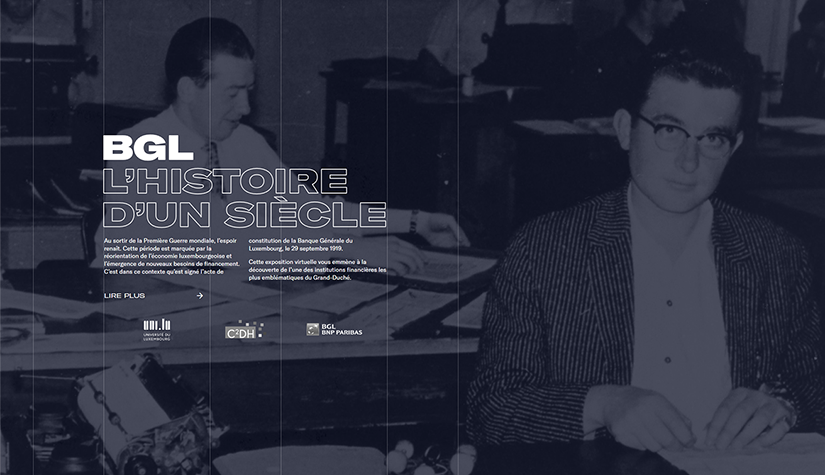
BGL: L’histoire d’un siècle
Die virtuelle Ausstellung wurde vom C²DH anlässlich des 100-jährigen Bestehens von BGL BNP Paribas entwickelt. Die Retrospektive umfasst die Geschichte der Bank von 1919 bis heute.
-

Éischte Weltkrich: Erinnerungen an den Ersten Weltkrieg in Luxemburg
Die vom C²DH entwickelte virtuelle Ausstellung zeichnet wichtige Aspekte der Geschichte und Erinnerung an den Ersten Weltkrieg in Luxemburg nach.
-

CVCE.eu by uni.lu
Eine Sammlung thematischer digitaler Veröffentlichungen zum europäischen Integrationsprozess von 1945 bis 2014. Eine Analyse einer Reihe von Themen basierend auf einer umfassenden und kontextualisierten Auswahl von mehr als 25.000 relevanten und angereicherten multimedialen, aus mehreren Quellen und in mehreren Sprachen stammenden Dokumentarressourcen.
-

Covidmemory
Mit der Online-Plattform covidmemory.lu möchte das C²DH allen in Luxemburg lebenden oder arbeitenden Menschen die Möglichkeit bieten, ihre Erfahrungen mit der Covid-Pandemie zu teilen und für zukünftige Generationen zu bewahren. Auf dieser offenen und kostenlosen webbasierten Plattform kann jeder Fotos, Videos oder Texte hochladen und so dokumentieren, wie die Pandemie unser Leben verändert hat.
-

A Colônia Luxemburguesa
Dieser transmediale Dokumentarfilm führt uns in das Herz der sogenannten Colônia Luxemburguesa und lädt uns ein, gemeinsam ein Jahrhundert industriellen, kulturellen und sozialen Erbes zu entdecken.
Journal of Digital History
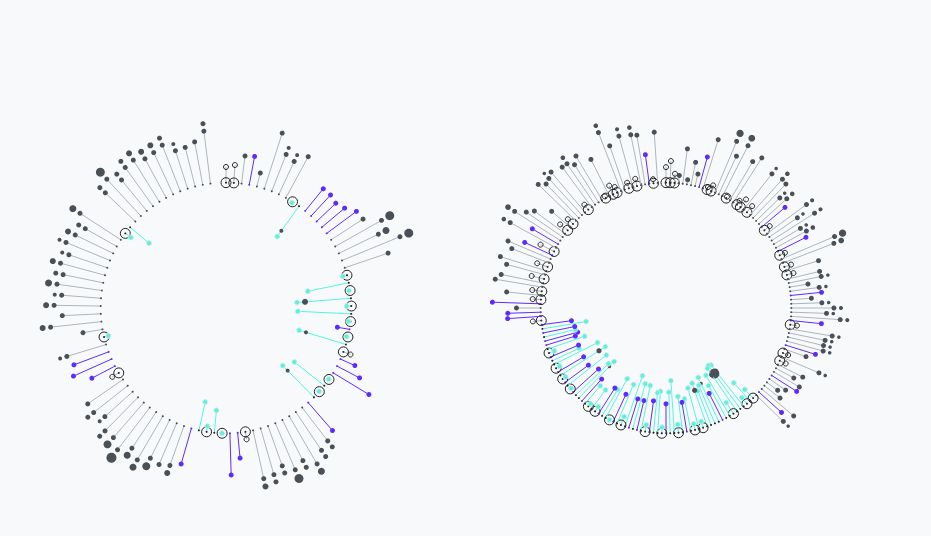
Als internationale, wissenschaftliche, peer-reviewte und Open-Access-Zeitschrift wird das Journal of Digital History (JDH) neue Maßstäbe in der Geschichtspublikation setzen, die auf dem Prinzip mehrschichtiger Artikel basiert.
Ziel der Zeitschrift ist es, zum zentralen Knotenpunkt kritischer Debatten und Diskussionen im Bereich der digitalen Geschichte zu werden, indem sie eine innovative Publikationsplattform bietet und eine neue Form der datengesteuerten Wissenschaft und des transmedialen Geschichtenerzählens in den Geschichtswissenschaften fördert.
Innovating & Sharing History Podcast

Wollten Sie schon immer Zeitgeschichte und digitale Geschichte auf neue und spannende Weise erkunden? „Innovating and Sharing History“ ist der C²DH-Podcast, der Sie in das spielerische Experimentieren mit modernsten digitalen Methoden und Werkzeugen zum Studium, Interpretieren, Erzählen und Veröffentlichen von Zeitgeschichte einführt. In jeder Folge stellen Historiker, Datenwissenschaftler, Webentwickler und Studenten die Herausforderungen der zeitgenössischen, öffentlichen Geschichte dar und bieten neue Perspektiven und innovative Ansätze zum Teilen der Vergangenheit.
Buchreihe mit De Gruyter Oldenbourg
Das C²DH teilt und fördert die Ergebnisse seiner Forschung durch eine Vielzahl von Publikationen. Seine Forscher erstellen wissenschaftliche Veröffentlichungen, die sich an Gleichgesinnte und eine Fachleserschaft richten. Drei Buchreihen im Open Access sind das Ergebnis einer Partnerschaft mit dem wissenschaftlichen Herausgeber De Gruyter Oldenbourg.
-
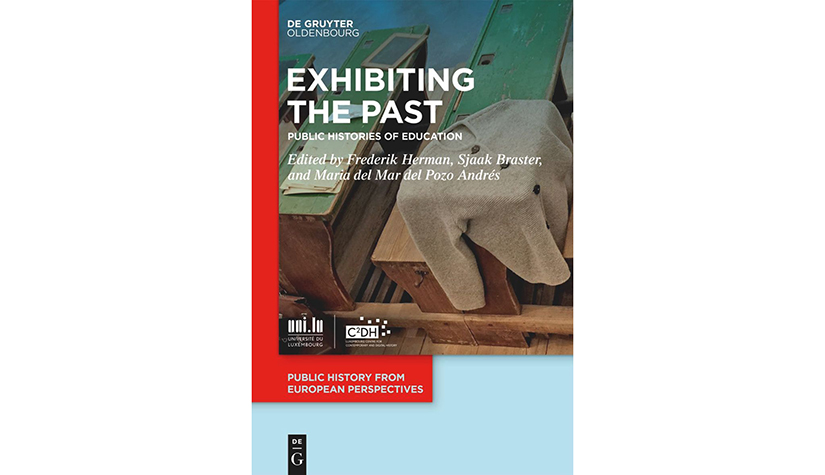
Public History from European Perspectives
With this book series, the C2DH wants to serve as a platform for public history, exploring its potential as an interdisciplinary field and a means of fostering and reflecting upon public engagement, dissemination and participatory practices in areas such as heritage-making, modes of display, and historical storytelling.
-
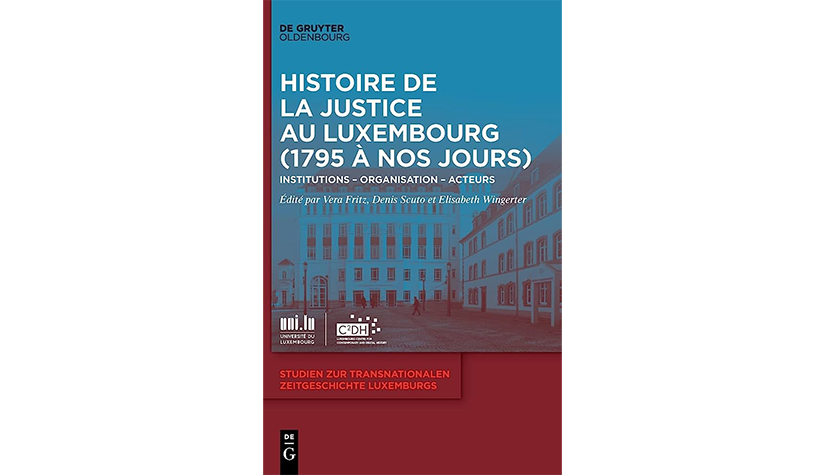
Transnational history of Luxembourg
The book series, Transnational History of Luxembourg, offers a platform for studies about Luxembourg in a European perspective. The book series places particular emphasis on the analysis of the political, economic, social and cultural history of Luxembourg from 19th and 21st century. The aim is to produce new knowledge about the transnational history of Luxembourg by studying phenomena and processes that have profoundly affected the country and whose comparative value exceeds the national perspective. The series is edited by Benoît Majerus and Denis Scuto.
-

Studies in Digital History and Hermeneutics
The series Digital History and Hermeneutics offers a platform for cutting edge scholarship in the emerging field of digital history and hermeneutics. It aims at making a critical intervention in the field of digital humanities and introduces key debates and concepts of digital history to the historical community at large. The series is edited by Andreas Fickers, Valérie Schafer, Sean Takats, and Gerben Zaagsma.
Jahresberichte
Erfahren Sie mehr über die Höhepunkte und Erfolge des C²DH im Laufe der Jahre. Alle unsere Jahresberichte sind vollständig digital in Englisch verfügbar.